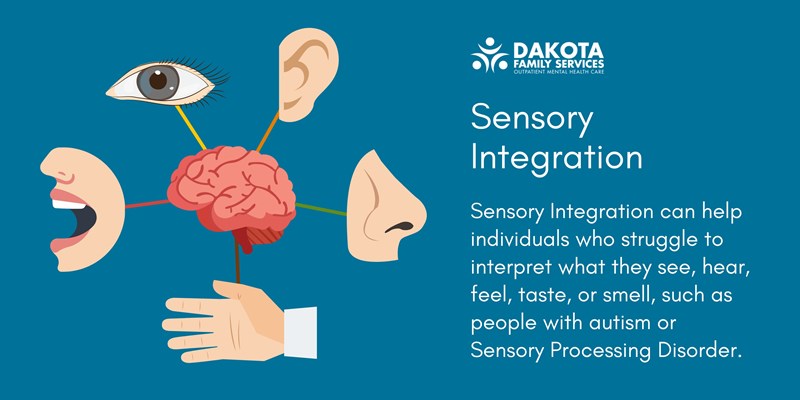Sensory Integration
Definition
Sensory integration is a process that helps you to interpret and respond to the world around you. It involves the brain, body and nervous system to interpret information from your senses (such as touch, taste, sight, sound and smell). The brain receives this information and then makes sense of it by organizing it into meaningful patterns. Sensory integration helps you to make sense of what you see, hear, feel, taste and smell.
When sensory integration is disrupted it can cause problems with behavior. For example, if someone has difficulty processing visual information they may be clumsy or bump into things often. If they have difficulties processing auditory information they might not understand instructions or be able to follow rules set by others in their life (e.g., parents).
Key Things to Know About Sensory Integration
- Sensory integration is important for everyone—and especially for kids with autism spectrum disorders (ASDs)—because it helps them make sense of their surroundings. If their sensory processing isn't working properly, they may have trouble interacting with other people or making sense of their own emotions and needs.
- Occupational therapy helps children develop skills that help them understand their bodies better and make sense of their environment so they can learn how to respond appropriately when they encounter new situations or experiences.
- Children who have processing sensory information may have under- or over-reactive nervous systems.
Symptoms Include
- Trouble focusing and staying on task
- Difficulty with fine motor skills (like handwriting)
- Problems with social interactions (like being unable to read body language
- Trouble sleeping
More Resources:
- National Center for Learning Disabilities (NCLD) - Provides information on sensory issues and how they can interfere with learning and behavior through its Understood web portal.
- STAR Institute for Sensory Processing - Nonprofit dedicated to improving the quality of life for children, adolescents and adults with SPD, and their families by providing comprehensive assessment, research, education for caregivers, and advocacy for recognition of SPD worldwide.
- Sensory Processing Disorder Parent Support - Online support resource with information on sensory processing issues, including retailers, advice and therapies.
- SPD Support - National network of parent volunteers who share information, spread awareness and provide support to SPD families. Includes an online forum where parents can post questions and resources.


